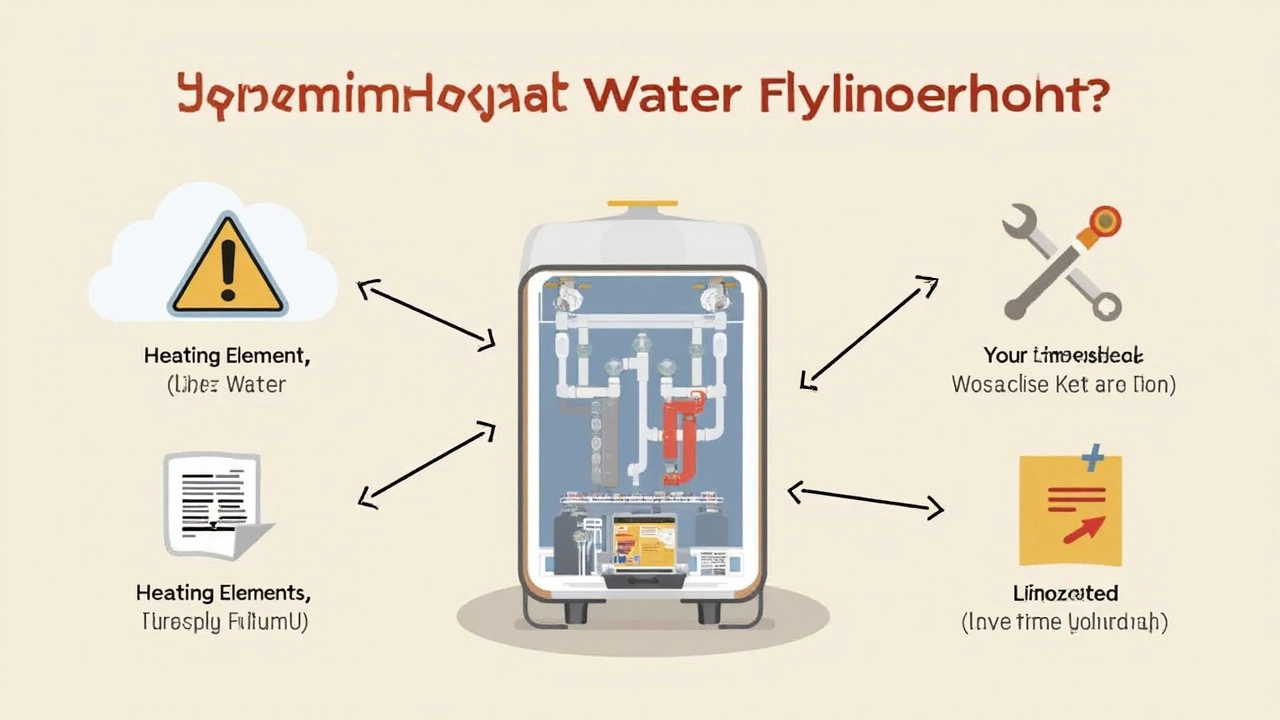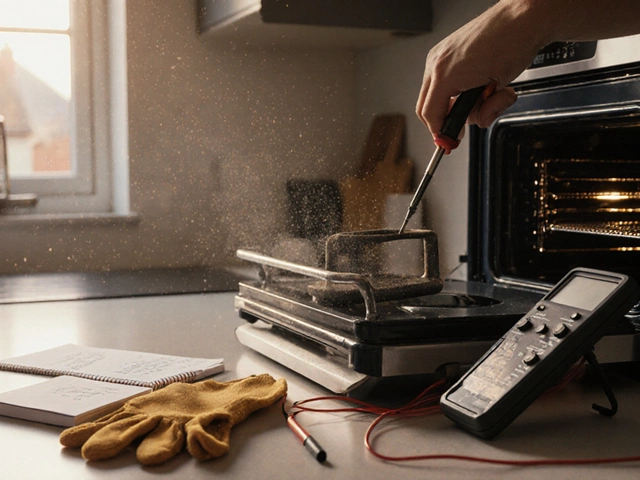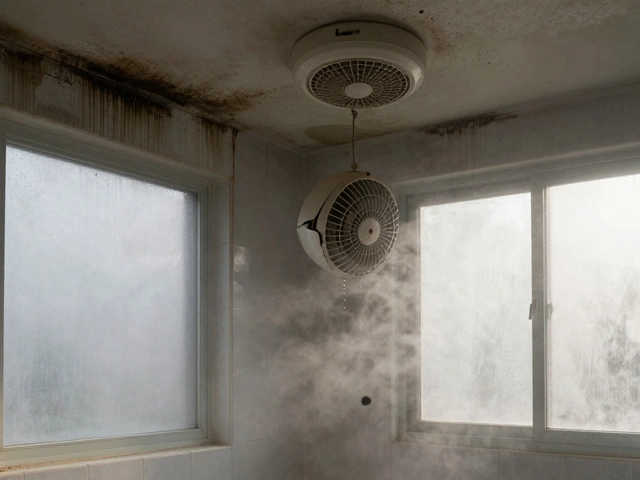Picture this: you’re in the middle of a hot shower, and suddenly, the water turns ice cold. You’ve just stumbled onto a problem nobody wants—your water heater is done. But how long should a water heater last before it calls it quits? There’s a lot of confusion about this because these silent workhorses sit in the basement, out of sight and out of mind. The truth is, knowing what to expect from your water heater can save you from that freezing surprise and even from wading into costly water damage cleanup.
What’s the Usual Lifespan of a Water Heater?
Most folks are shocked to learn that their water heater’s lifespan isn’t as straightforward as the label on the box. On average, a traditional tank-style water heater will last about 8 to 12 years. Some hang around for 15, but that’s stretching it. If you have a tankless water heater, you might score 20 years of service with good habits. Why does this range exist? It all comes down to what type of water heater you own, how hard your water is, and whether you bothered with routine checkups.
Let’s break down the factors:
- Type: Traditional tank-style water heaters have a glass-lined steel tank that’s prone to corrosion. Tankless heaters, by comparison, don’t store hot water, so they dodge some of that rust problem.
- Fuel: Gas water heaters usually conk out a year or two earlier than electric models. Gas burners put more stress on parts compared to electric coils.
- Water Quality: Hard water (full of minerals) eats away at the inside of your tank and the heating elements, making them wear out faster.
- Usage: Households with lots of hot water action—think bigger families, many showers, running a dishwasher all day—put serious miles on a water heater.
- Maintenance: Annual maintenance can work wonders for a water heater’s lifespan. Flushing out sediments and checking the anode rod (the part that stands between your tank and rust) can buy you a few solid years.
If you want hard numbers, here’s a quick breakdown:
| Type | Average Lifespan (Years) |
|---|---|
| Tank (Gas) | 8–10 |
| Tank (Electric) | 10–12 |
| Tankless | 15–20 |
| Heat Pump | 12–15 |
The numbers paint a pretty clear picture. Planning for water heater replacement after the decade mark is wise, even if your tank seems fine—because the alternative can mean chasing leaks and damage.
Why Do Water Heaters Fail?
Water heaters don’t die of old age alone. Most quit because of one major problem: corrosion. Inside that metal tank is a pressure stew—hot water, minerals, and dissolved oxygen all working to eat through steel like termites through wood. The glass-lining slows it down, and the anode rod (basically a "sacrificial" metal stick) takes the biggest hit to keep the tank safe. Once this rod’s spent, that corrosion accelerates.
Here’s what usually kills a water heater:
- Corrosion: Once the protective lining fails or the anode rod wears out, the steel tank starts to pit and rust. Eventually, you’ll get leaks.
- Sediment Buildup: Hard water leaves mineral deposits (calcium, magnesium) on the bottom of the tank. Those thick layers make heaters work overtime and can cause hot spots that crack the lining.
- Pressure Problems: If the temperature and pressure relief valve malfunctions (or if you set the temp too high), pressure builds up and can even cause the tank to burst.
- Old or Bad Parts: Heating elements, pilot lights, thermostats—they all have life limits. One failed part can take out the heater.
The experts warn against pushing your luck. Plumbing pro Richard Trethewey—seen on PBS’s "This Old House"—once said,
“A water heater is much like a ticking clock. Ignore it long enough, and you’ll have a surprise you never wanted to clean up.”
Remember, tankless models dodge the rust problem but can still go down if you skimp on maintenance. Blocked vents and faulty sensors can stop these efficient machines dead in their tracks.

How to Make Your Water Heater Last Longer
Here’s a secret: you can squeeze extra years from your water heater with a handful of easy steps—no plumbing degree required.
- Flush the Tank Yearly: Sediments build up fast. Draining the tank each year flushes out that gunk, lets your heater run smoother, and helps prevent overheating (which cracks the glass lining).
- Check the Anode Rod: Every couple of years, have someone inspect (and if needed, replace) the anode rod. These rods are cheap insurance against rust, but most people forget about them.
- Lower the Temperature: A factory setting of 140°F is overkill for most families. Drop the thermostat to 120°F—your energy bill and your water heater will both thank you.
- Insulate: Wrap insulation blankets around older water heater tanks and hot water pipes. This slashes heat loss and lets the system work less hard, especially during winter.
- Fix Leaks Quickly: Drips around fittings? Don’t ignore them. Even small leaks can quickly ruin a tank and cause mold—but a $5 fitting fix saves the day.
- Schedule Yearly Inspections: Most plumbers offer water heater checkups for a pretty reasonable rate. Spotting a leaking valve or rust ring early can save you thousands.
If you’ve got hard water, think about installing a water softener. Soft water is way less likely to clog up heating elements and extend your tank’s lifespan. According to the Water Quality Association, homes with a softener system saw water heaters last up to 4 years longer on average.
Another pro tip: install a drain pan and water leak alarm under your tank. If the worst happens, you’ll catch the leak before it wrecks your flooring or walls. Prevention almost always beats cleanup.
When to Replace: Warning Signs You Can’t Ignore
It’s tempting to squeeze every last day out of your water heater. But there’s a difference between thrift and a ticking time bomb. Here’s what you need to watch for:
- Age: If your tank is pushing 10, start planning for a replacement. Don’t bet on it lasting forever.
- Rusty Water: Brown or red water from the hot tap usually means inside rust. If you see this, it’s probably time to retire your water heater.
- Water Around the Tank: Any puddles or leaks are red flags. They rarely fix themselves, and tomorrow’s drip is next week’s flood.
- Sudden Changes in Water Temperature: If showers get colder, or you keep running out of hot water faster than before, the heating element is probably dying.
- Strange Noises: Popping or rumbling? That’s heating through mountains of sediment. At this point, flushing may be too late—the damage is done.
- Repeating Repairs: If you’re calling your plumber more and more, the tank is on borrowed time.
Some insurance companies now refuse to cover water damage from old tanks—especially those over a decade old. Getting stuck with the bill for destroyed carpets and soggy drywall is the worst surprise of all.
Don’t forget to recycle your old tank. Most cities offer pickup or drop-off programs for old water heaters, so you don’t have to dump yours in a landfill. Your next unit could even be made from recycled metal.
So, how many years should a water heater last? Count on 8–12 for tank models and up to 20 for tankless, but don’t push your luck past the averages. Show your heater a little love now, and you’ll save yourself money—and a cold shock—down the road.





